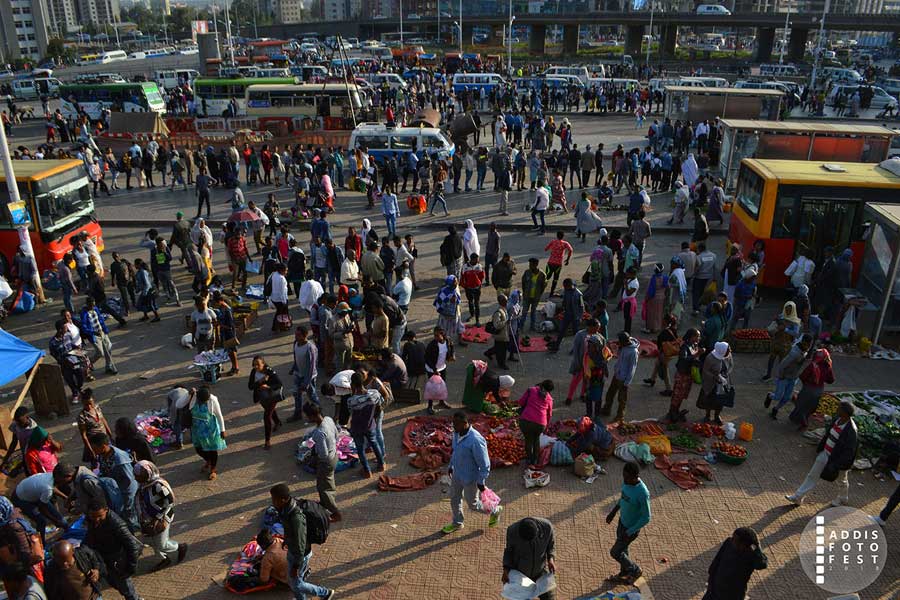
Commentaries | May 31,2025
Apr 11 , 2020
By Kesete Admasu (MD)
With its weak health system and lack of resources, Ethiopia is one of the countries that are most at risk to the threat posed by the Novel Coronavirus (COVID-19). The country's best bet is to slow and stop the transmission of this deadly contagion by mobilising its community-based systems to respond to the shocks that will be caused by the pandemic, writes Kesetebirhan Admasu (MD), CEO at Big Win Philanthropy and Ethiopia's former minister of Health.
The Novel Coronavirus (COVID-19) pandemic is having a profound impact all over the world. It continues to overwhelm more robust health systems in the global north. As the virus spreads rapidly to the global south, it poses a serious threat to public health and will easily overwhelm the feeble health systems in Sub-Saharan Africa.
The region is witnessing a rapid rise in the number of confirmed COVID-19 cases, with a 25pc daily increase over the past five days, according to the World Health Organization’s (WHO) regional office for Africa. Because testing capacity is limited, it is fair to assume that there are clusters of cases that are yet to be detected. Most likely, this is also true for Ethiopia, which reported 65 cases as of April 10, 2020.
In order to slow or stop the transmission of the deadly contagion, Ethiopia's best bet is to mobilise its community-based systems in anticipation of the shocks that will be caused by the pandemic. This entails mobilising the health extension workers, women’s groups and frontline workers such as agriculture development agents and primary school teachers to reach every household with critical information, identify people who exhibit COVID-19 symptoms and facilitate testing or self-isolation.
Access to credible information and community engagement in the fight against the pandemic will help prepare families, communities and local health systems to stop the spread of the virus. These community-based platforms can also play a vital role in igniting solidarity movements and creating a social safety net initiative for those in need.
By leveraging its community infrastructure, Ethiopia can get daily reports from millions of households. This will make it easy to get reports of rumours of local transmission of the virus. These rumours should be investigated within 24 hours by rapid response teams that are mandated with conducting rapid assessment of a possible outbreak. As the first line of defence, Ethiopia needs to expand these teams to at least one for every wereda in the country.
With the support of WHO, African CDC and charitable donors like Chinese billionaire Jack Ma, Ethiopia is expanding its COVID-19 testing.
“The most effective way to prevent infections and save lives is breaking the chains of transmission, and to do that, you must test and isolate,” underscored Tedros Adhanom (PhD), director-general of WHO. “You cannot fight a fire blindfolded. And we cannot stop this pandemic if we don’t know who is infected. We have a simple message for all countries: test, test, test.”
Thanks to the HIV programme, Ethiopia has a significant number of polymerase chain reaction (PCR) machines that can carry out the COVID-19 tests. But these machines need testing kits and other accessories. While expanding access to testing is still a big challenge even in advanced economies, it is encouraging to see that a lot of new tools are entering the marketplace.
Prime Minister Abiy Ahmed (PhD) should join forces with other heads of government across the continent to aggressively push for greater access to testing kits to ramp up their country's testing capacity.
Another intervention that requires high-level advocacy and engagement is the supply of the personal protective gear for health workers. While rallying the world to boost the supply of these commodities is critical, it is equally important to look at the possibility of locally producing these items.
The rate of COVID-19 infections among health workers is alarmingly high in Spain and Italy. Considering the meagre supply of protective gear in our facilities, one can imagine that the impact on health workers will be devastating. There should be no stone that is left unturned to ensure the supply of protective gear to our health facilities.
Providing optimal care for all patients, especially the seriously ill, is one of the objectives of the COVID-19 response. We have a limited capacity to provide intensive care. There is also a critical shortage of professionals that can care for patients in intensive care units.
Fantastic work is already being done to refresh the medical skills of frontline workers, and the response plan should consider creating a roster of health workers nationwide that can be deployed to facilities with COVID-19 patients. It is encouraging to see the Ethiopian professional health associations establishing different committees to advise the Health Ministry in its response. It is absolutely crucial for our medical and scientific community to improvise and innovate to save lives and guide the strategy against the virus based on locally appropriate technology.
The non-pharmaceutical measures introduced by the government, such as social distancing and closing schools, are extremely helpful in enhancing primary prevention and accelerating the pace and effectiveness of public health measures. Ethiopia’s response to the pandemic should strive to be the ultimate guide when it comes to aligning national and regional, public and private forces.
All government ministries and departments need to be conveying consistent information. While each ministry will have its own specific angle, the communications being issued must not conflict with one another.
For many, this will be a very frightening time. And as the crisis goes on, more and more people will avoid going to health facilities to seek care for other illnesses. We saw this during the Ebola outbreak in West Africa, when many people died from malaria and pneumonia because of the drop in health-seeking behaviour.
Every precaution and preparation must be made to ensure the continuity of routine services.
We should all thank healthcare workers who are putting their lives in harm’s way to save lives and protect all of us. One of the ways to thank them is by adhering to the preventive measures and staying safe.
PUBLISHED ON
Apr 11,2020 [ VOL
21 , NO
1041]


View From Arada | Jul 24,2021

Fortune News | Jan 22,2022

Radar | Aug 05,2023

Viewpoints | Nov 30,2019

Fortune News | Mar 19,2022

Photo Gallery | 178855 Views | May 06,2019

Photo Gallery | 169054 Views | Apr 26,2019

Photo Gallery | 159909 Views | Oct 06,2021

My Opinion | 137118 Views | Aug 14,2021
Commentaries | Oct 25,2025

Dec 22 , 2024 . By TIZITA SHEWAFERAW
Charged with transforming colossal state-owned enterprises into modern and competitiv...

Aug 18 , 2024 . By AKSAH ITALO
Although predictable Yonas Zerihun's job in the ride-hailing service is not immune to...

Jul 28 , 2024 . By TIZITA SHEWAFERAW
Unhabitual, perhaps too many, Samuel Gebreyohannes, 38, used to occasionally enjoy a couple of beers at breakfast. However, he recently swit...

Jul 13 , 2024 . By AKSAH ITALO
Investors who rely on tractors, trucks, and field vehicles for commuting, transporting commodities, and f...

Oct 25 , 2025
The regulatory machinery is on overdrive. In only two years, no fewer than 35 new pro...

Oct 18 , 2025
The political establishment, notably the ruling party and its top brass, has become p...

Oct 11 , 2025
Ladislas Farago, a roving Associated Press (AP) correspondent, arrived in Ethiopia in...

Oct 4 , 2025
Eyob Tekalegn (PhD) had been in the Governor's chair for only weeks when, on Septembe...

Oct 25 , 2025 . By YITBAREK GETACHEW
Officials of the Addis Abeba's Education Bureau have embarked on an ambitious experim...

Oct 26 , 2025 . By YITBAREK GETACHEW
The federal government is making a landmark shift in its investment incentive regime...

Oct 29 , 2025 . By NAHOM AYELE
The National Bank of Ethiopia (NBE) is preparing to issue a directive that will funda...

Oct 26 , 2025 . By SURAFEL MULUGETA
A community of booksellers shadowing the Ethiopian National Theatre has been jolted b...